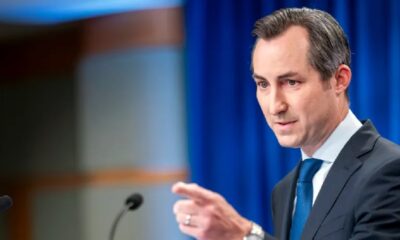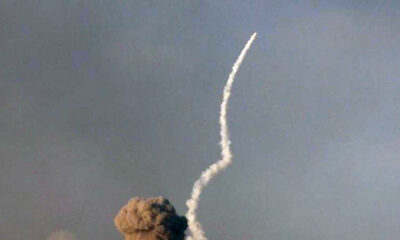Latest News
Human Rights Watch accuses Israel of ‘apartheid’ crimes against Palestinians
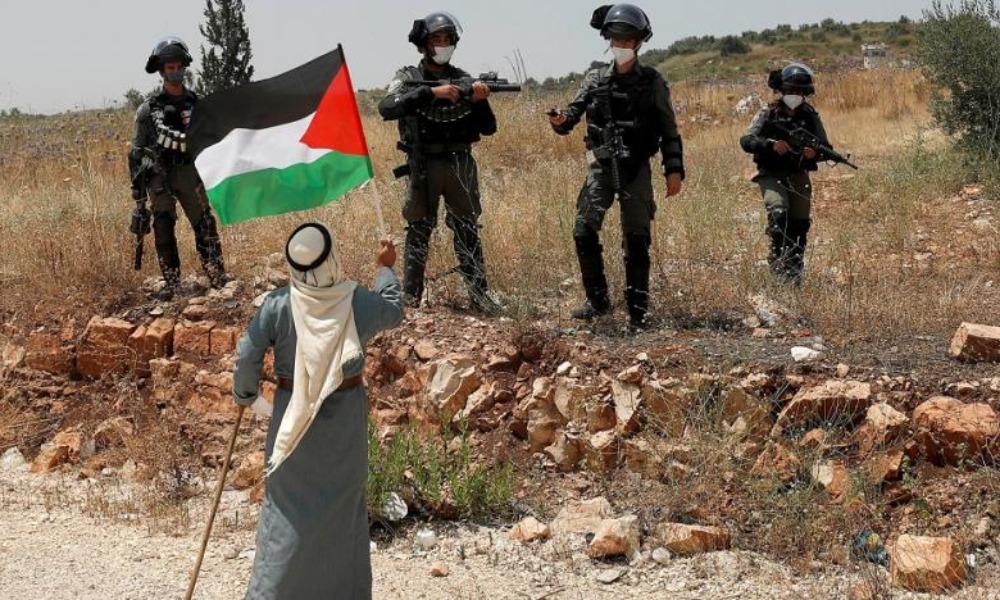
An international rights watchdog accused Israel on Tuesday of pursuing policies of apartheid and persecution against Palestinians – and against its own Arab minority – that amount to crimes against humanity.
New York-based Human Rights Watch published a 213-page report which, it said, was not aimed at comparing Israel with apartheid-era South Africa but rather at assessing “whether specific acts and policies” constitute apartheid as defined under international law.
Israel’s foreign ministry rejected the claims as “both preposterous and false” and accused HRW of harbouring an “anti-Israeli agenda,” saying the group had sought “for years to promote boycotts against Israel”.
Just weeks ago the International Criminal Court (ICC) announced it would investigate war crimes in the Israeli-occupied West Bank and Gaza Strip, with the Israeli military and armed Palestinian groups such as Hamas named as possible perpetrators.
In its report, HRW pointed to Israeli restrictions on Palestinian movement and seizure of Palestinian-owned land for Jewish settlement in territory occupied in the 1967 Middle East war as examples of policies it said were crimes of apartheid and persecution.
“Across Israel and the (Palestinian territories), Israeli authorities have pursued an intent to maintain domination over Palestinians by exercising control over land and demographics for the benefit of Jewish Israelis,” the report says.
“On this basis, the report concludes that Israeli officials have committed the crimes against humanity of apartheid and persecution,” as defined under the 1973 Apartheid Convention and the 1998 Rome Statute.
BOYCOTT ACCUSATIONS
Israeli officials fiercely object to apartheid accusations.
“The purpose of this spurious report is in no way related to human rights, but to an ongoing attempt by HRW to undermine the State of Israel’s right to exist as the nation state of the Jewish people,” Strategic Affairs Minister Michael Biton said.
Israel’s foreign ministry said HRW’s Israel programme was being “led by a known (BDS) supporter, with no connection to facts or reality on the ground,” referring to the pro-Palestinian Boycott, Divestment and Sanctions movement.
The report’s author, HRW Israel and Palestine Director Omar Shakir, was expelled from Israel in 2019 over accusations he backs BDS.
Shakir denies that his HRW work and pro-Palestinian statements he made before being appointed to the HRW post in 2016 constitute active support for BDS.
Shakir told Reuters that HRW would send its report to the ICC prosecutor’s office, “as we normally do when we reach conclusions about the commissions of crimes that fall within the Court’s jurisdiction.”
He said HRW also sent the ICC its 2018 report about possible crimes against humanity by President Mahmoud Abbas’s Palestinian Authority and the Islamist militant Hamas.
ICC PROBE
The International Criminal Court’s prosecutor said in March that she would formally investigate war crimes in the Palestinian territories, after ICC judges ruled that the court had jurisdiction there.
The Palestinian Authority welcomed the ruling but Israeli Prime Minister Benjamin Netanyahu denounced it as anti-Semitism and said Israel does not recognise the court’s authority.
HRW called on the ICC prosecutor to “investigate and prosecute individuals credibly implicated” in apartheid and persecution.
HRW also said Israel’s 2018 “nation state” law – declaring that only Jews have the right of self-determination in the country – “provides a legal basis to pursue policies that favour Jewish Israelis to the detriment” of the country’s 21% Arab minority, who regularly complain of discrimination.
Palestinians seek the West Bank, Gaza and East Jerusalem, areas captured in the 1967 conflict, for a future state.
Under interim peace deals with Israel, Palestinians have limited self-rule in the West Bank; Hamas runs Gaza.
Latest News
250,000 Afghan children need homes, food, education after returning from Pakistan
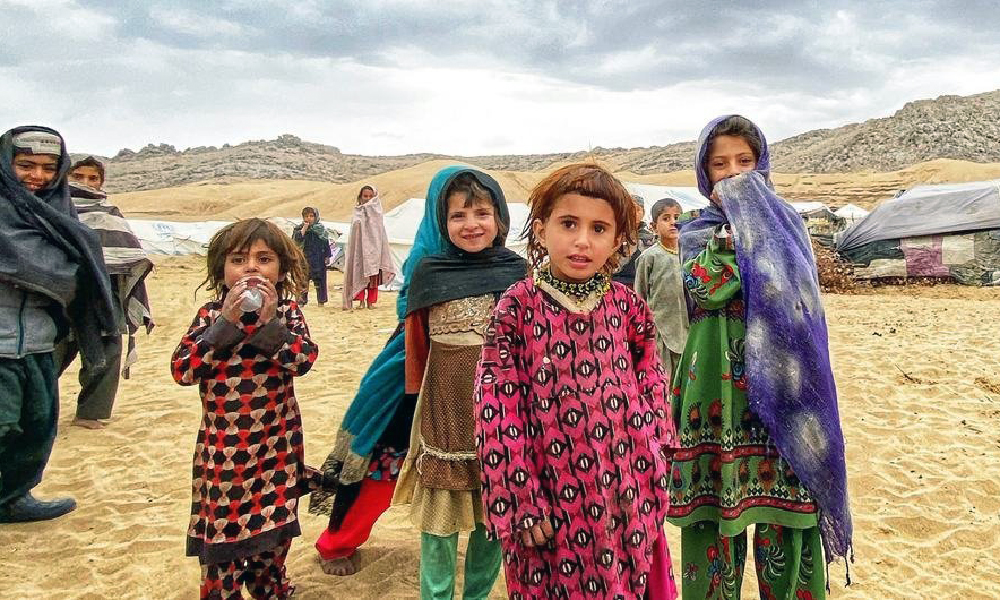
In the wake of an announcement by Pakistan that it intends to start Phase Two of deportations of Afghans, Save the Children said Thursday that almost a quarter of a million Afghan children need proper homes, food, and access to education after returning from Pakistan in the past seven months.
In a statement issued by the organization, Save the Children said more than 520,000 Afghans have returned from Pakistan since September last year, after Pakistan said all undocumented foreigners must leave the country voluntarily or face deportation.
Nearly half of all the returnees are children.
A survey by Save the Children of families who have returned to Afghanistan – and the communities who are hosting them – found that nearly all (99%) do not have enough food for the next one to two months.
About three-quarters of returnees and families in host communities reduced portion sizes or restricted the food consumption of adults so small children could eat.
About 40% of returnees and host families surveyed had to borrow food or rely on friends and relatives for at least three days a week – with 13% of returnees and 9% of host families saying they had to get food from others every day.
Almost 8 million children in Afghanistan – or one in three – are facing crisis levels of hunger.
Nearly one in six families live in tents, according to the survey, with most returnees having little or no means to support themselves.
Only a third had managed to bring assets back with them from Pakistan.
Nearly half (47%) said there were no jobs available in Afghanistan, with 81% saying that they do not have any skills that could lead to employment.
Almost two thirds (65%) of children who have returned to Afghanistan have not been enrolled in school. The majority (85%) told Save the Children that they don’t have the necessary documents to register and enroll in school.
In Pakistan, more than two thirds of these children had been attending school.
Arshad Malik, Country Director for Save the Children in Afghanistan, said: “Families are returning to Afghanistan with virtually nothing. Most are relying on relatives or friends to support them – and these communities already have little to support themselves.
“The return of so many people is creating an additional strain on already overstretched resources. Children need support and stability. Many undocumented Afghan children were born in Pakistan – Afghanistan is not the place they call home,” he said.
He added that in addition to the returns from Pakistan, 600,000 Afghans arrived from Iran last year. Also, “families have been forced from their homes by multiple disasters, including the series of earthquakes in Herat and the ongoing drought. Afghanistan is also now home to the second largest number of internally displaced people in the world – or roughly 1 in 7 people,” Malik said.
According to him, Afghanistan not only needs urgent funding from international donors and governments – but also needs long term, community-based solutions to help all displaced Afghans rebuild their lives.
Latest News
US asks IEA to ensure Afghan soil not used by terrorists
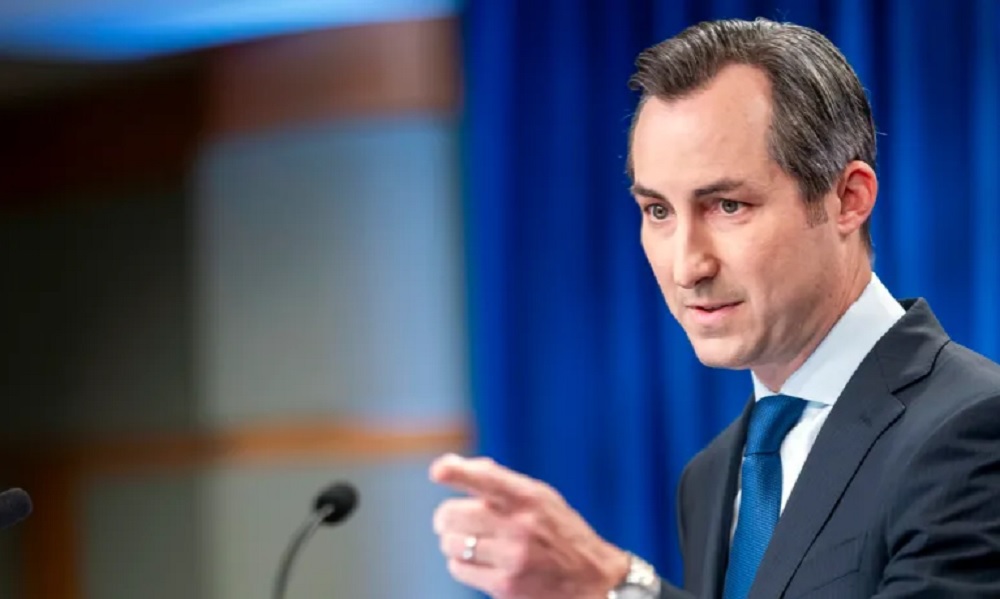
The US State Department on Thursday asked the Islamic Emirate of Afghanistan (IEA) to ensure that Afghanistan is not used to support terrorist groups, movement of terrorists or acts of terrorism.
A State Department spokesman told Geo News that Washington has “been very clear that we will judge the Taliban (IEA) by what they do, not what they say.”
“The Taliban (IEA) wants international legitimacy. This requires the Taliban (IEA) to meet their commitments to the international community,” the official said.
The spokesperson said the most enduring interest for the US in Afghanistan was to ensure that it never again became a safe haven for terrorists, especially for those who wished harm to the US or its partners or allies.
“We are in regular communication with Pakistani leaders as a part of our partnership on counterterrorism issues. We continue to discuss Afghanistan in detail, including through our annual counterterrorism dialogue and other bilateral consultations,” the official said.
Islamabad has time and again urged Kabul to take meaningful action against terrorists using Afghan soil to launch attacks inside Pakistan.
However, the IEA has repeatedly rejected claims of militant groups in the country and have said they will not allow any group to threaten a country from Afghanistan.
On Tuesday, the Pakistan Army’s top commanders were briefed on how terrorist groups operating from Afghanistan pose a threat to regional and global security, besides acting as proxies against Pakistan and its economic interests, especially the China-Pakistan Economic Corridor (CPEC).
A day ago, the Inter-Services Public Relations (ISPR) said security forces had killed seven terrorists trying to infiltrate the Pakistan-Afghanistan border in the North Waziristan district.
In a statement, the military’s media wing had said the security forces on April 16 had detected a movement of a group of seven terrorists near the border in the Spinkai area of Ghulam Khan in the tribal district, Pakistan’s The News reported.
Latest News
Over 6,000 acres of land cleared of poppies in Badakhshan
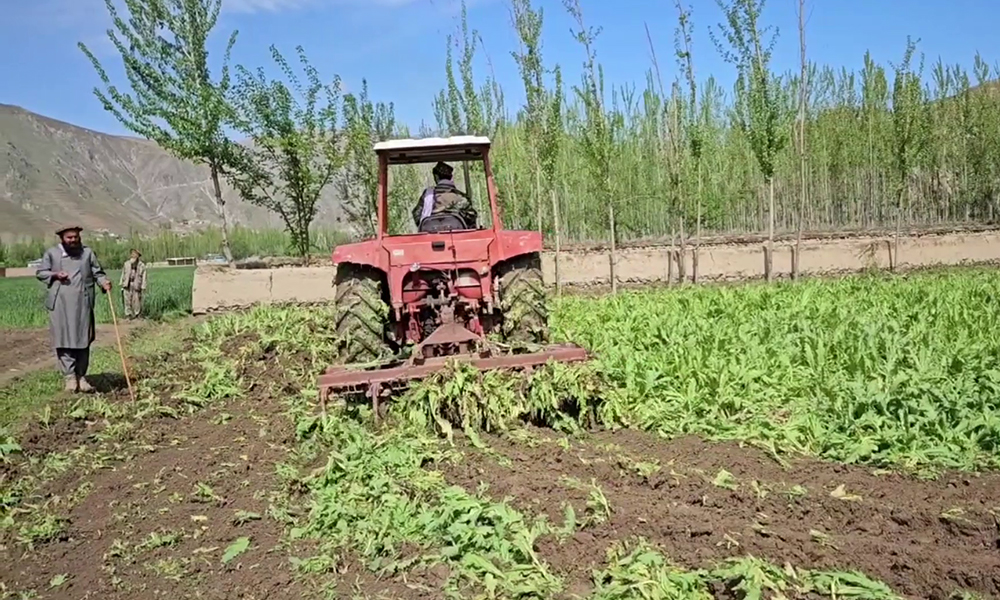
Badakhshan Police Command says it has cleared more than 6,000 acres of poppy fields in northern Badakhshan province.
The anti-narcotics department of Badakhshan Police Command says that since the beginning of the campaign to destroy the poppy fields in this province, they have cleared more than 6,000 acres of land.
According to these officials, poppies have however been planted in more than 10 districts this year.
The anti-narcotics department of the Badakhshan Police Command says that the campaign to destroy the poppy plantations started two months ago and continues.
According to the officials, during this period, 6,300 acres of land has been cleared.
Some of the farmers whose fields were destroyed say that poppy is more profitable than other agricultural products, but now that their land has been cleared, they want alternative crops.
According to the officials, Kishim, Argo, Darayimand and Jurm districts are among the districts where poppies are cultivated.
-

 Sport5 days ago
Sport5 days agoACL draw to be broadcast live on ATN channels
-

 Sport4 days ago
Sport4 days agoACL fever grows as fixtures finalized
-

 World4 days ago
World4 days agoUS will not take part in any Israeli retaliatory action against Iran
-

 Latest News4 days ago
Latest News4 days agoOver 50 people dead in traffic accidents over Eid
-

 Latest News4 days ago
Latest News4 days agoUS identifies Kabul airport suicide bomber
-

 Business4 days ago
Business4 days agoAfghanistan-Kazakhstan chamber of commerce opens in Herat
-

 Latest News4 days ago
Latest News4 days agoGood rains enable DABS to increase power production in Kabul
-

 World3 days ago
World3 days agoIsraeli military vows response to Iran attack as calls for restraint mount




